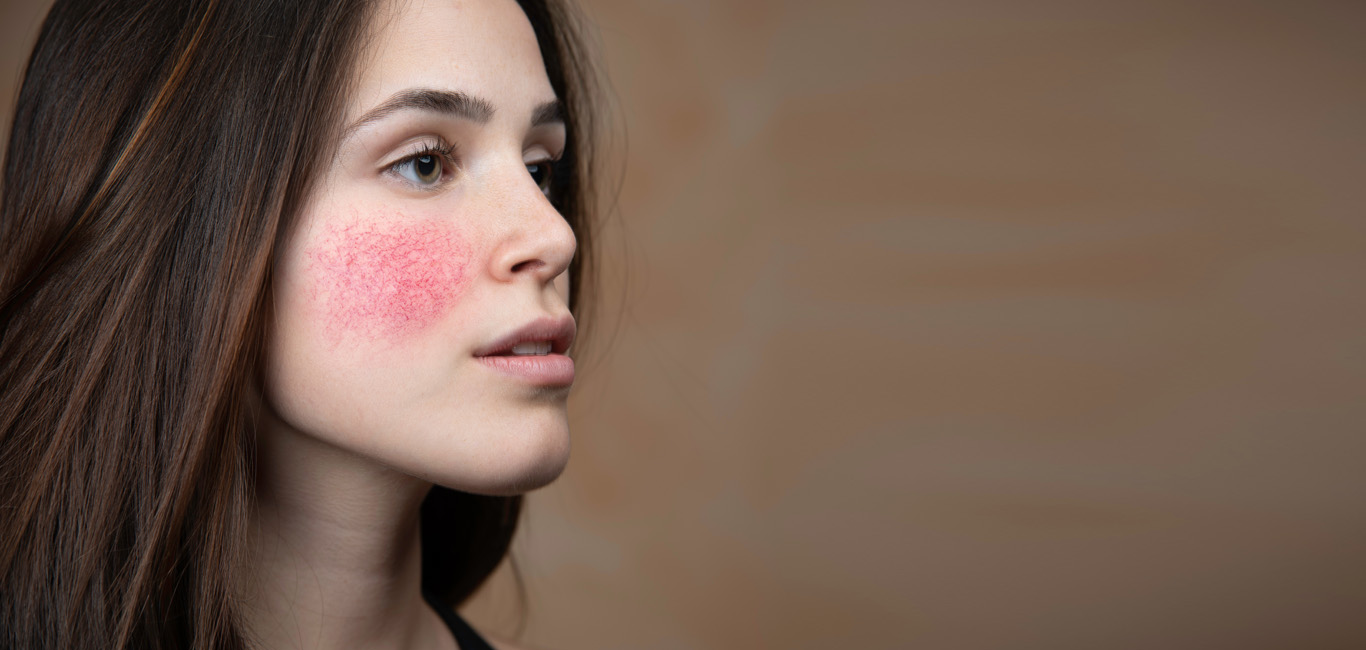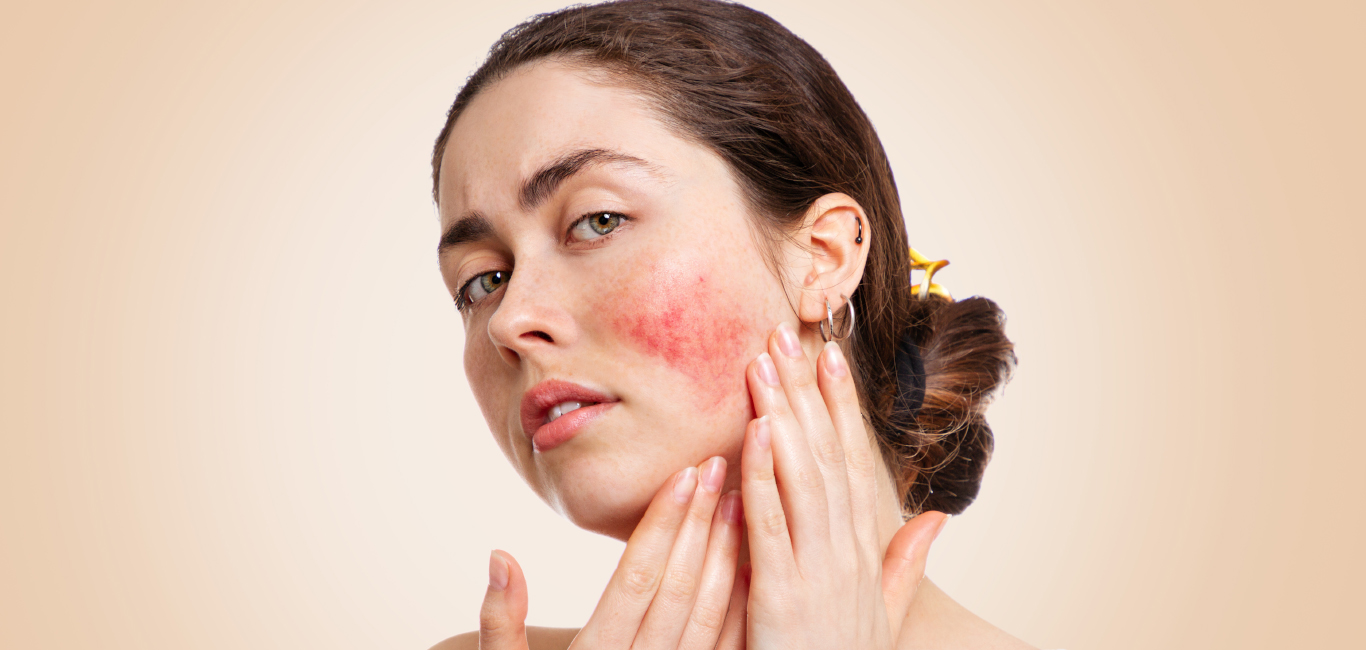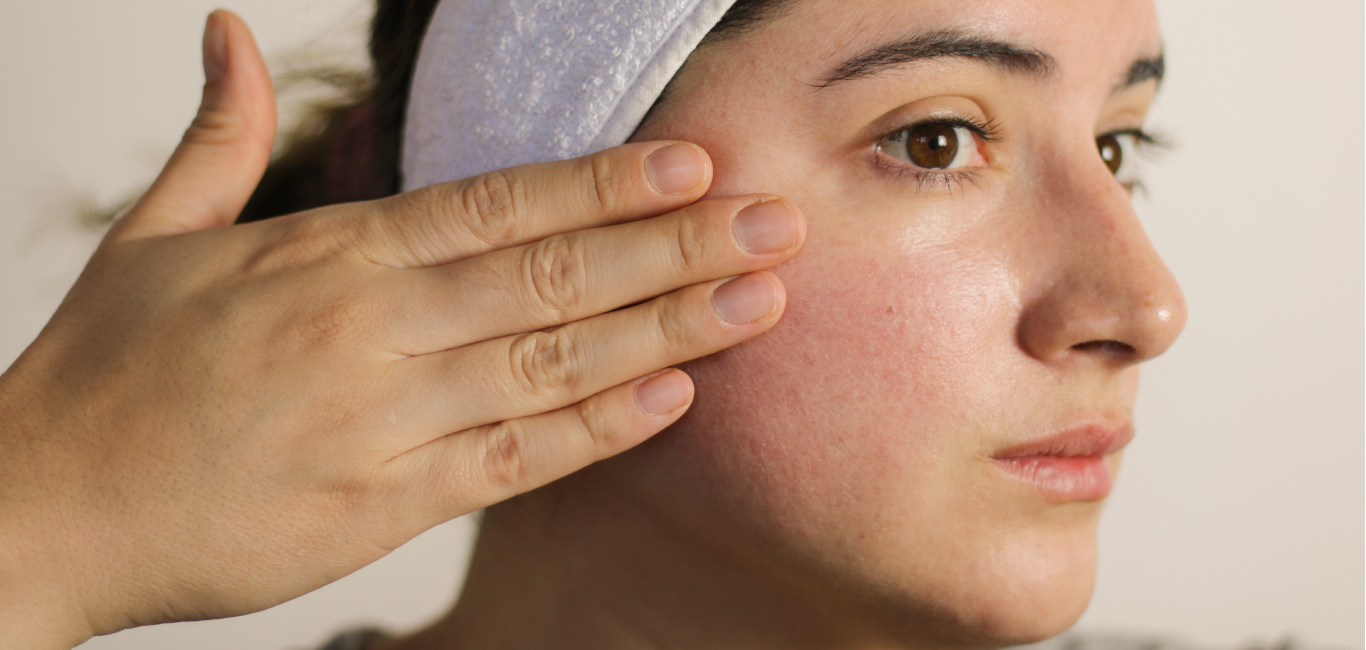
Rosacea is a skin inflammation that commonly results in redness or pimple-like eruptions on the forehead, nose and chin. These might come as pus-filled bumps or visible blood vessels on the cheeks, making them look red, and sometimes leading to slight swelling.
Experts add that this condition affects women between the ages of 30 and 60 more frequently than men.
Causes of rosacea
Dr Seema Oberoi Lall, consultant, dermatology, CK Birla Hospital, Gurugram, says that the exact cause of rosacea is not known. Although there are various hypotheses around it, there is no definitive proof of it being an autoimmune disease. “Many theories point towards a genetic predisposition, environmental factors, and immune responses may also seem to play a role,” she says.
Researchers think the Demodex mite and Helicobacter pylori bacteria could be linked to rosacea. However, the evidence remains unclear at this stage.
Symptoms of rosacea
Dr Rashmi Ravindra, consultant, dermatology and cosmetology, Fortis Hospital, Bengaluru, says that the inflammation causes redness of the skin. Apart from the face, the redness can occasionally appear on the chest, ear lobe, scalp or back of the neck.
What triggers rosacea symptoms?
According to a 2018 research, people with rosacea react to numerous triggers such as temperature changes, heat, cold, exercise, UV radiation, spicy food and alcoholic beverages.
Hot coffee and tea can also function as triggers. Any hot beverage, including alcohol in moderate or excessive amounts, coupled with exposure to sunlight, heightened stress levels or intense physical exertion, can act as catalysts.
Dr Ravindra adds that certain medications used for treating other conditions, such as painkillers or topical steroids, as well as certain creams containing retinoids, alpha-hydroxy acids, or hairspray with alcohol or fragrances like perfume, have also been identified as potential triggers.
Types of rosacea
There are four distinct types of rosacea, though one can experience symptoms of more than one type.
Erythematotelangiectatic rosacea: In this condition, there is visible persistent redness on the face due to enlarged blood vessels. Flare-ups are also common. Untreated redness can become permanent.
Papulopustular rosacea: It is associated with pus-filled blemishes and red, swollen bumps, often mistaken for acne. They appear on the cheeks, chin, and forehead, accompanied by facial redness and flushing. Severe cases can result in numerous blemishes, sometimes on the scalp, neck or chest.
Rhinophyma rosacea: The skin becomes bumpy, swollen, and sometimes changes colour due to thickening and scarring. Mostly seen on the nose and resulting in a swollen appearance. This is more common in men.
Ocular rosacea: In this condition, the symptoms primarily target the eyes, which can appear watery or bloodshot. This may be accompanied by a burning or irritation sensation. Furthermore, it can also contribute to chronic dryness and heightened sensitivity in the eyes, potentially leading to the development of cysts on the eyelids.
Diagnosis of rosacea
Rosacea is primarily diagnosed by a thorough examination. It shares some characteristics with adult acne, with some individuals developing small papules or eruptions similar to acne.
A dermatologist’s expertise is crucial in distinguishing between acne and rosacea. Over time, untreated cases can lead to persistent redness and skin thickening, a condition known as phymatous rosacea. This subtype is more common in males and can affect areas like the nose and cheeks. Immediate diagnosis is important to prevent progression to the phymatous subtype.
Moreover, rosacea can trigger eye-related issues causing discomfort. In many cases, an ocular examination helps to assess how the eyes are affected. Hence, diagnosing rosacea primarily relies on clinical judgement, considering the various symptoms and potential complications it presents.
What foods should one avoid if one has rosacea?
Rosacea treatment is a two-fold process. “Medical prescriptions address individual symptoms and disease stage. Simultaneously, proactive home steps involve trigger recognition and avoidance,” explains Dr Lall. Very hot or spicy foods (like hot coffee, soups, or excessively spicy dishes work as triggers for rosacea. To manage one’s condition effectively, it is advisable to avoid triggers. Incorporating preventive measures into one’s daily routine can significantly contribute to managing rosacea symptoms and enhancing one’s treatment plan.
Permanent relief from rosacea
A 2018 study led by Joerg Buddenkotte, academic research scientist at Hamad Medical Corporation, Doha, indicates that consistently following skincare guidance and using suitable, gentle skincare products can effectively reduce rosacea flare-ups and enhance one’s quality of life.
Dr Ravindra says that rosacea is not curable, and a clear-cut solution is yet to be established for the condition. However, it can be effectively managed and controlled through proper treatment. Since there is no one-size-fits-all solution for the condition, the treatment needs to be tailored individually.
The journey with rosacea is not uniform. Some encounter phases marked by susceptibility for a span of time, only for it to gradually recede, while others might experience a lifelong predisposition.
Early intervention is key
Recognising the triggers gives one more control, reducing the need for medical treatment. As the condition progresses to advanced stages, characterised by skin thickening, it can be irreversible or intensive approaches such as surgery or lasers might be required. Thus, timely diagnosis and ongoing precautions are needed for effective rosacea management.

















